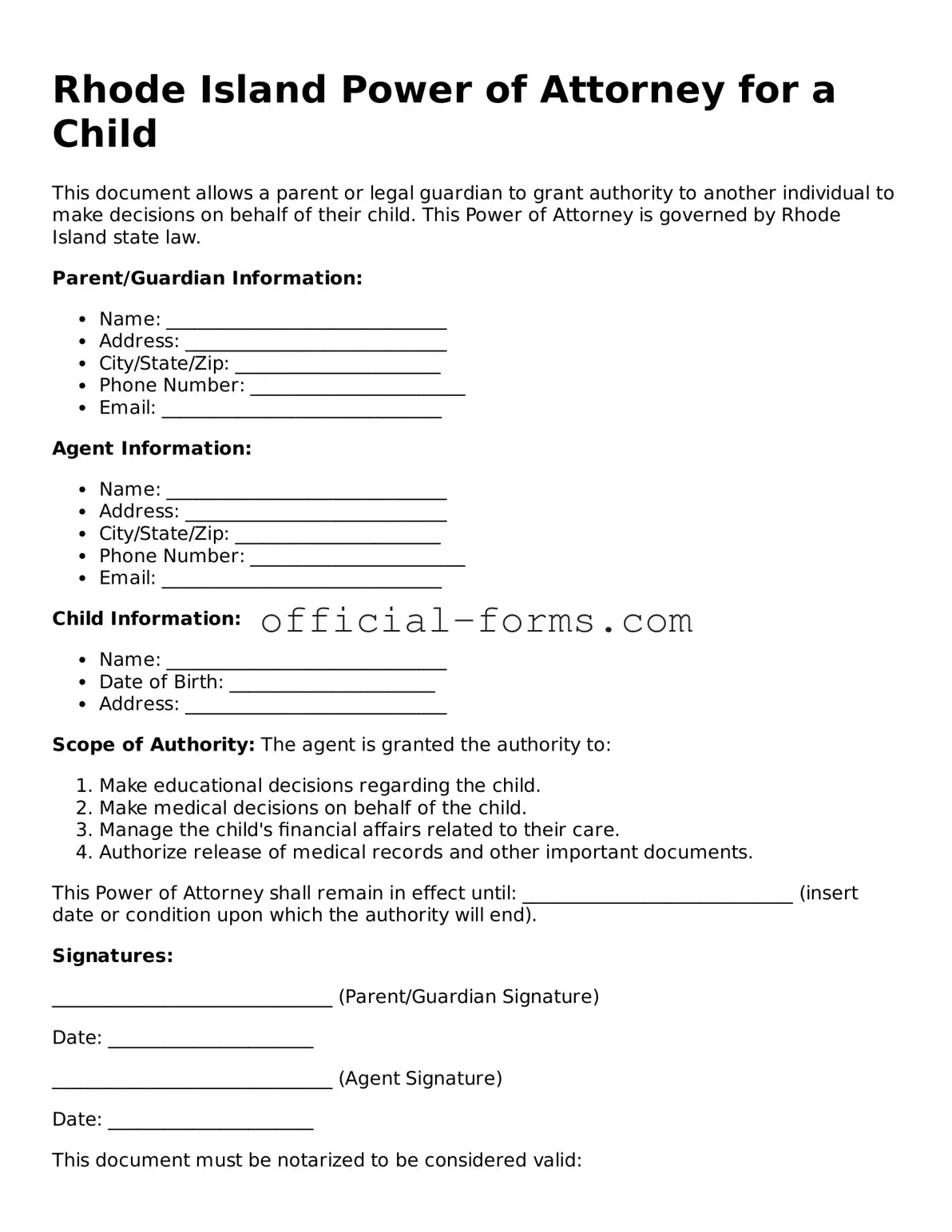Official Rhode Island Power of Attorney for a Child Document
The Rhode Island Power of Attorney for a Child form is a legal document that allows a parent or guardian to designate another adult to make decisions on behalf of their child. This arrangement can be crucial in situations where the parent is unable to be present, ensuring that the child's needs are met. Understanding how to properly use this form can help provide peace of mind for families navigating temporary circumstances.
Open My Power of Attorney for a Child Now

Official Rhode Island Power of Attorney for a Child Document
Open My Power of Attorney for a Child Now
Don’t leave your form incomplete
Finish Power of Attorney for a Child online quickly from start to download.
Open My Power of Attorney for a Child Now
or
➤ PDF
